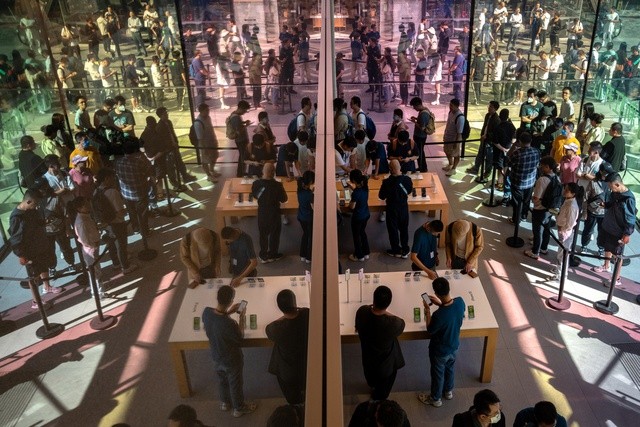The Power of Brands: How Apple’s iPhone Redefines Status and Wealth

Apple is a trillion-dollar company, ranking among the most valuable brands in the world. Its flagship product, the iPhone, has become a symbol of status and wealth, on par with luxury brands like Louis Vuitton and Mercedes. But what makes the iPhone so sought after? And why do people feel the need to display their social standing through their choice of smartphone?
The Psychology of Consumer Behavior
Nailya Ordabayeva, an associate professor of business administration at the Tuck School of Business, explains, “Consumers are truly concerned with using products and brands to signal who they are. With brands that have built a strong image over the years, consumers see this as a positive signal.” Apple has spent over 15 years cultivating this image, emphasizing revolutionary design, sleek aesthetics, and stringent manufacturing processes. On the other hand, an Android device can look like anything, owned by anyone.
Apple further solidifies its allure by creating excitement with each product release. Every announcement, no matter how small, is treated as a momentous event. The iconic image of people lining up outside Apple Stores on launch day has become ingrained in our collective imagination.
By elevating the iPhone’s status, much like a Louis Vuitton handbag or a Mercedes car, Apple taps into the desire of consumers to emulate those around them and not be left behind. This is particularly true for teenagers who want to stand out from the crowd. We look down to feel good about ourselves and look up to compare ourselves to society. Everyone seeks to convey their status, and this is a form of “conspicuous consumption.” Joshua Clarkson, a consumer psychologist and marketing professor at the University of Cincinnati, explains, “A group of consumers use iMessage as a way to fit in. Some brands excel at leveraging this tendency. They say their product is of higher quality.”
The Role of iPhone in Social Dynamics
While price may be a factor, people choose their phones for various reasons, including features, screen size, camera quality, and battery life. Budget may play a significant role, but the color of text messages does not reflect someone’s income or social status.
In reality, Apple’s dominance in the US smartphone market has been persistent for many years. Part of the motivation comes from Apple’s ability to maintain the popularity of iPhones among younger generations. People are afraid of disrupting group chats with the “green chat bubbles” – how Apple displays text messages sent from “foreign” devices.
“If you don’t use an iPhone, you’re likely to be left out of group chats on social media with your friends. It sounds mean, but it’s hard to text someone who doesn’t use the same brand of phone as you,” explains Nicole Jimenez, a 20-year-old sophomore at Rutgers University.
Carolina Milanesi, a technology analyst at Creative Strategies, points out that Apple has built an ecosystem of interdependent products, including AirPods, Macs, and Apple Watches, to create a “trap” for consumers.
In most affluent countries, consumers under the age of 29 are highly inclined towards iPhones. The transition to iPhones may be slower in Europe due to factors such as the availability of Android phones.
“I own pretty much everything Apple sells,” says a loyal iPhone user, pointing to their AirPods, iPhone, MacBook Air, and iPad. “I don’t mind paying a premium for a product if it’s good.”
“It’s hard to go back to Android once you’re used to iOS,” another user remarks.
At the end of the day, it’s essential to remember that material possessions alone do not bring happiness. Sometimes, they even lead to judgment. A viral video on social media recently asked women passing by a question about a 10-year-old kid with an Android phone. Most respondents answered with a low score and made comments about the “unimpressive” green chat bubbles.
In reality, while Android phones may be more affordable, the best-selling Android brand, Samsung, produces top-tier Galaxy smartphones with prices ranging from $800 to $1,100, equivalent to iPhones. Moreover, there is no evidence to suggest that iPhone users are all wealthy.
When it comes to choosing a phone, people consider a variety of factors. Brand loyalty, social influence, and personal preferences all play a role. However, it’s important to remember that choosing a phone based on the color of text messages is a shallow reason.
The power of the iPhone lies not only in its features but also in the symbolism it carries. Apple has created a brand that represents innovation, exclusivity, and social status. And as long as consumers continue to seek products that reflect who they are, Apple’s iPhone will remain a powerful status symbol.
